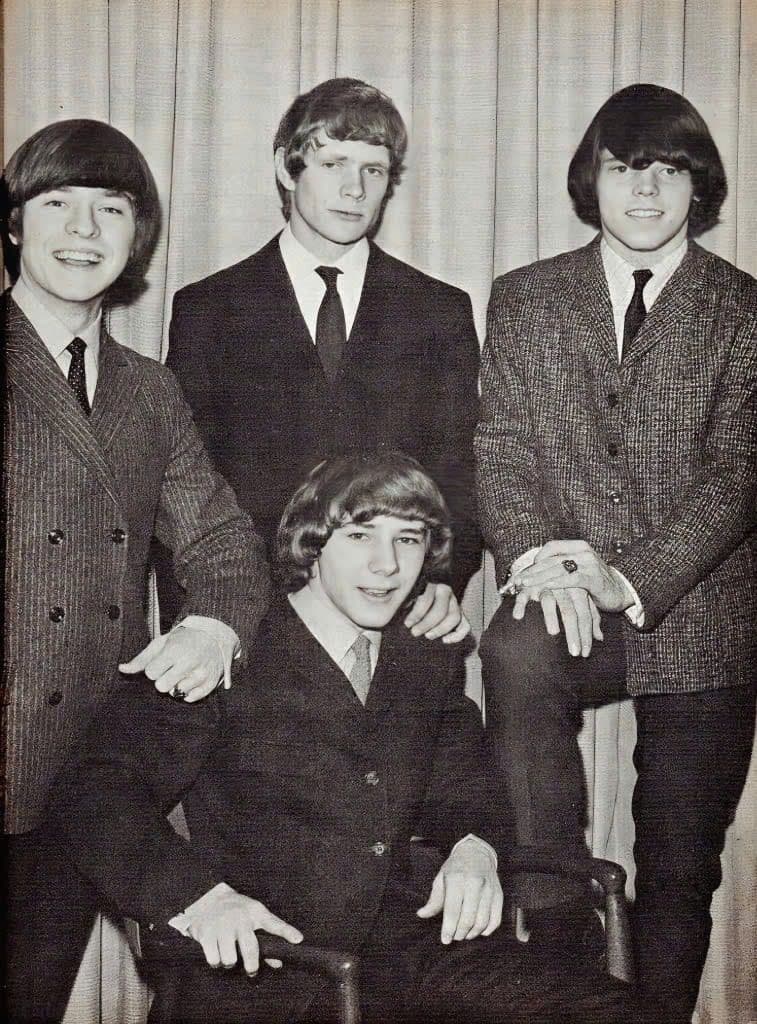
A song of unrequited love and the deep sadness it leaves behind.
There are some songs that, through no fault of their own, seem to get lost in the shuffle of musical history. They are the B-sides, the overlooked gems tucked away behind a smash hit, waiting to be discovered by a dedicated listener or resurrected by a new generation. Such is the story of “Sorrow” by The McCoys. Released in October 1965 as the B-side to their iconic chart-topper “Hang On Sloopy,” the song never charted for The McCoys. However, it found a second life and a legendary status through two very different but equally impactful covers. While the band, led by the incomparable Rick Derringer, was riding the wave of their single’s success, “Sorrow” was a quiet, folk-rock lament that showed a different side of their sound.
The meaning of the song is as simple and profound as its title suggests: it’s a direct, visceral expression of the pain of unrequited love. The lyrics, written by the prolific songwriting trio of Bob Feldman, Jerry Goldstein, and Richard Gottehrer, paint a vivid picture of a woman with “long blonde hair and your eyes of blue” who brings nothing but pain and heartache to the singer. It’s a tale as old as time—a beautiful, captivating figure who seems to hold all the power, leaving the suitor in a state of constant, aching sadness. The simple, repetitive refrain of “sorrow, sorrow” is not just a lyric; it’s a gut punch, an emotional echo that resonates with anyone who has ever felt the sting of a love that was given but not returned.
What makes The McCoys‘ version so compelling is its raw, unpolished sincerity. It’s not a grand, theatrical ballad; it’s a concise, two-minute burst of melancholy. The jangling guitars and the almost-monotone delivery of the vocals create an atmosphere of resigned sadness. It’s the sound of a young man who knows he’s been played, yet can’t bring himself to walk away. The song’s legacy is a fascinating journey. It was first made a hit in the UK by The Merseys in 1966, where their more up-tempo, pop-rock version reached number 4 on the charts. Then, in 1973, it was famously covered by David Bowie for his album of covers, Pin Ups. Bowie’s version, with its glammed-up, theatrical arrangement, became a worldwide hit, charting at number 3 in the UK. For a generation of listeners, Bowie’s rendition became the definitive version, often overshadowing its origin.
But for those of us who remember the original, there’s a certain quiet beauty in The McCoys‘ rendition. It’s a testament to the power of a simple, honest melody and a universal feeling. The song serves as a nostalgic trip back to a time when music was less about spectacle and more about feeling. It reminds us of a time when you’d buy a 45 RPM record, drop the needle, and discover a hidden treasure on the flip side—a song that might not have been a hit, but that spoke to your heart in a way the A-side never could. “Sorrow” is a classic example of that phenomenon, a forgotten masterpiece that continues to move people, whether they first heard it in the ’60s, the ’70s, or just yesterday.